
z.umn.edu/m-externship

z.umn.edu/m-externship

@iaglr.bsky.social #AIS
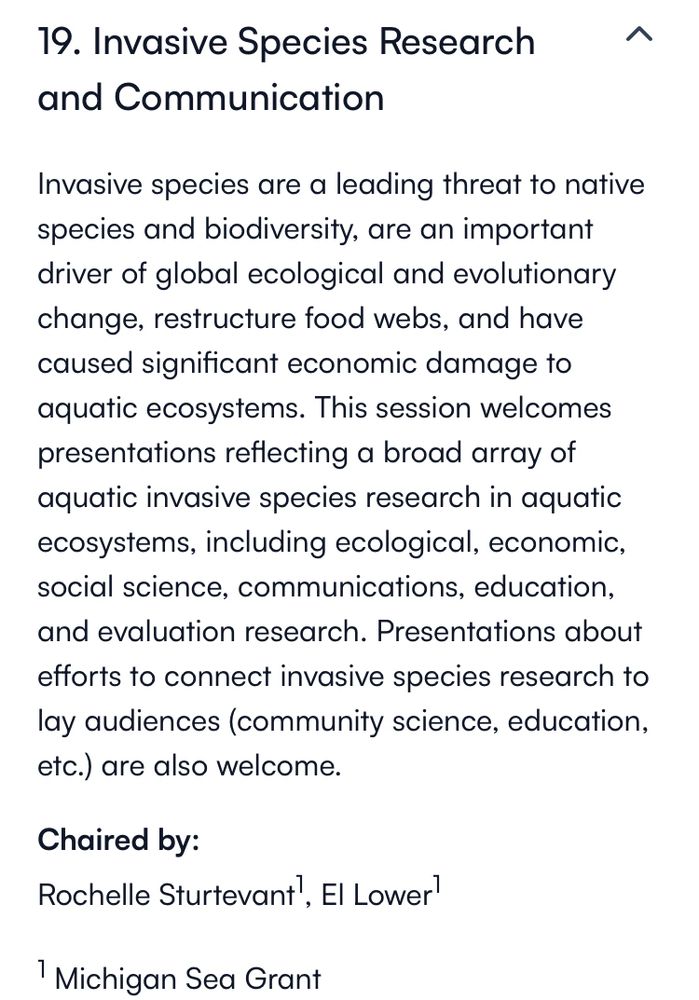
@iaglr.bsky.social #AIS
Now accepting submissions for the Alligator Gar Technical Committee Scholarship!
The cash scholarship is being provided by @alligatorgar-afs.bsky.social a student to help cover cost for attending the 2026 Southern Division @amfisheriessoc.bsky.social meeting in New Orleans🐟
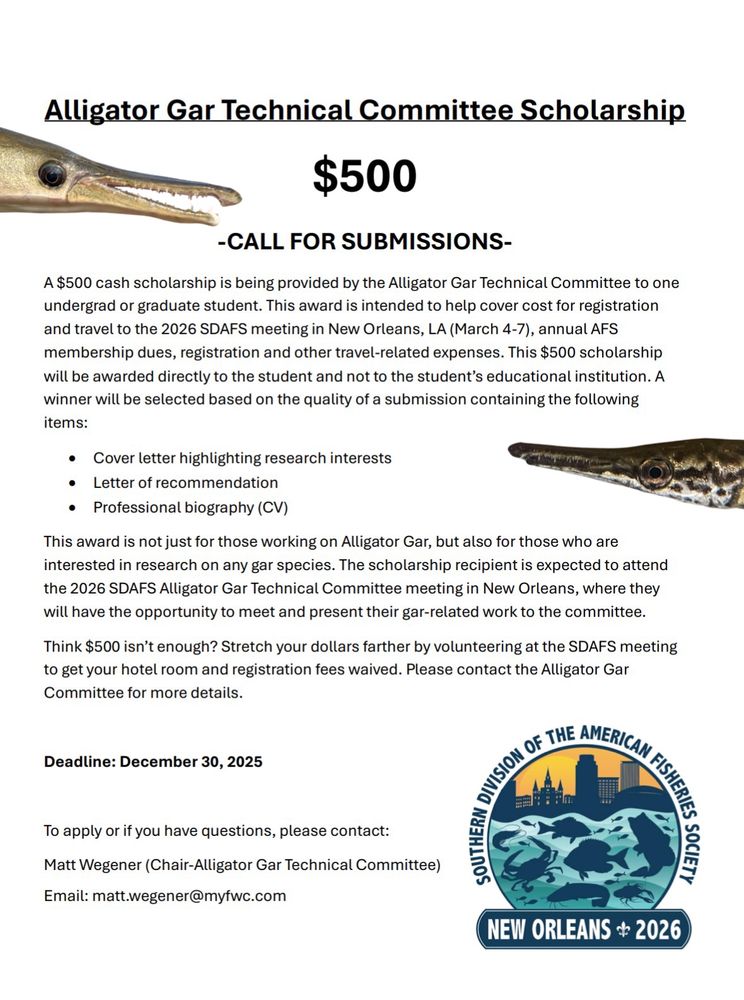
Now accepting submissions for the Alligator Gar Technical Committee Scholarship!
The cash scholarship is being provided by @alligatorgar-afs.bsky.social a student to help cover cost for attending the 2026 Southern Division @amfisheriessoc.bsky.social meeting in New Orleans🐟
Grateful for the opportunity to chat stewardship of freshwater natural resources with Steve Rinella and the hunting & fishing crew! youtu.be/xLDSV5qbyzw?...
Grateful for the opportunity to chat stewardship of freshwater natural resources with Steve Rinella and the hunting & fishing crew! youtu.be/xLDSV5qbyzw?...
via Gar Week fan👍
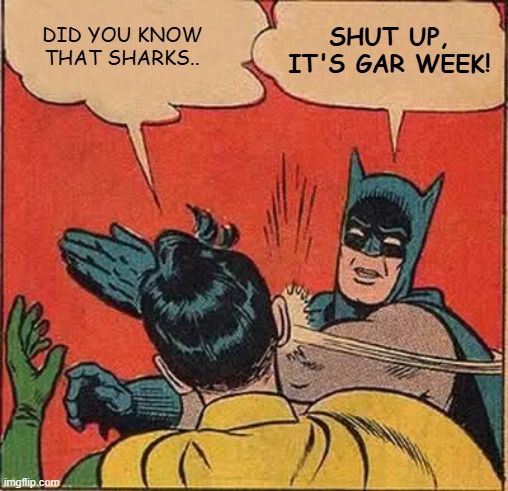
via Gar Week fan👍


www.mprnews.org/story/2025/0...

www.mprnews.org/story/2025/0...
Whether you're a professional in the field, a property owner, or someone who cares about Minnesota's lakes, you can participate in a quick survey about future AIS research needs.
Closes on Monday: z.umn.edu/RNA2025
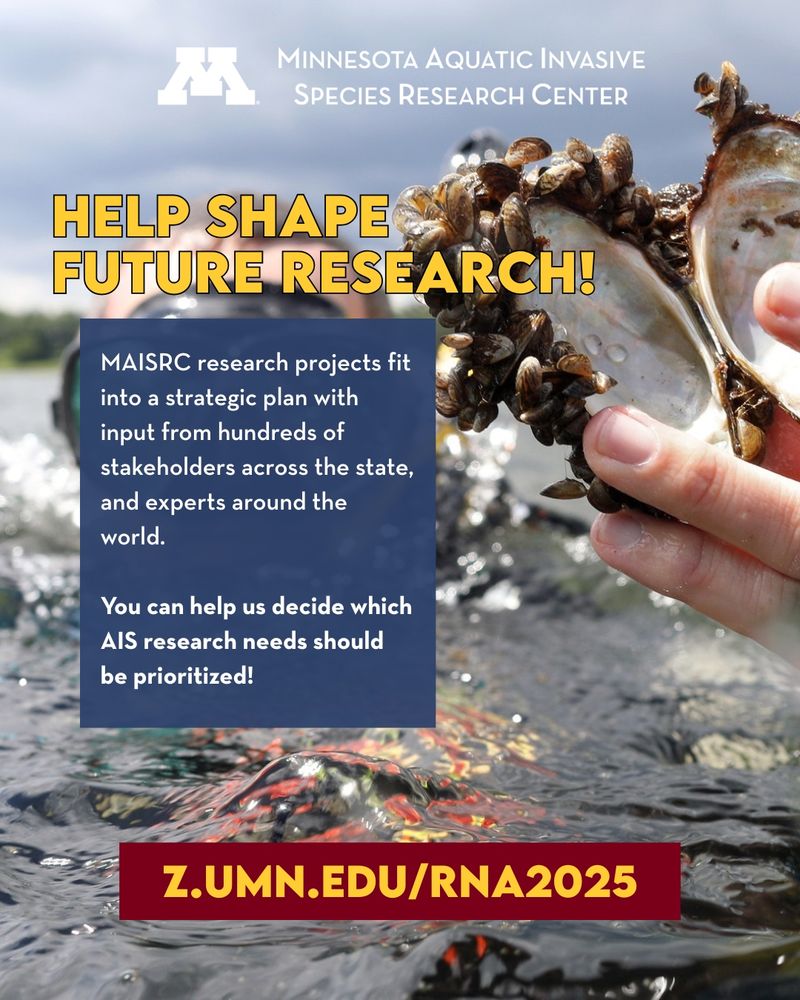
Whether you're a professional in the field, a property owner, or someone who cares about Minnesota's lakes, you can participate in a quick survey about future AIS research needs.
Closes on Monday: z.umn.edu/RNA2025
Applications are open through October 10, 2025.
Learn more and apply: z.umn.edu/MAISRCHiring (Job ID #370278).
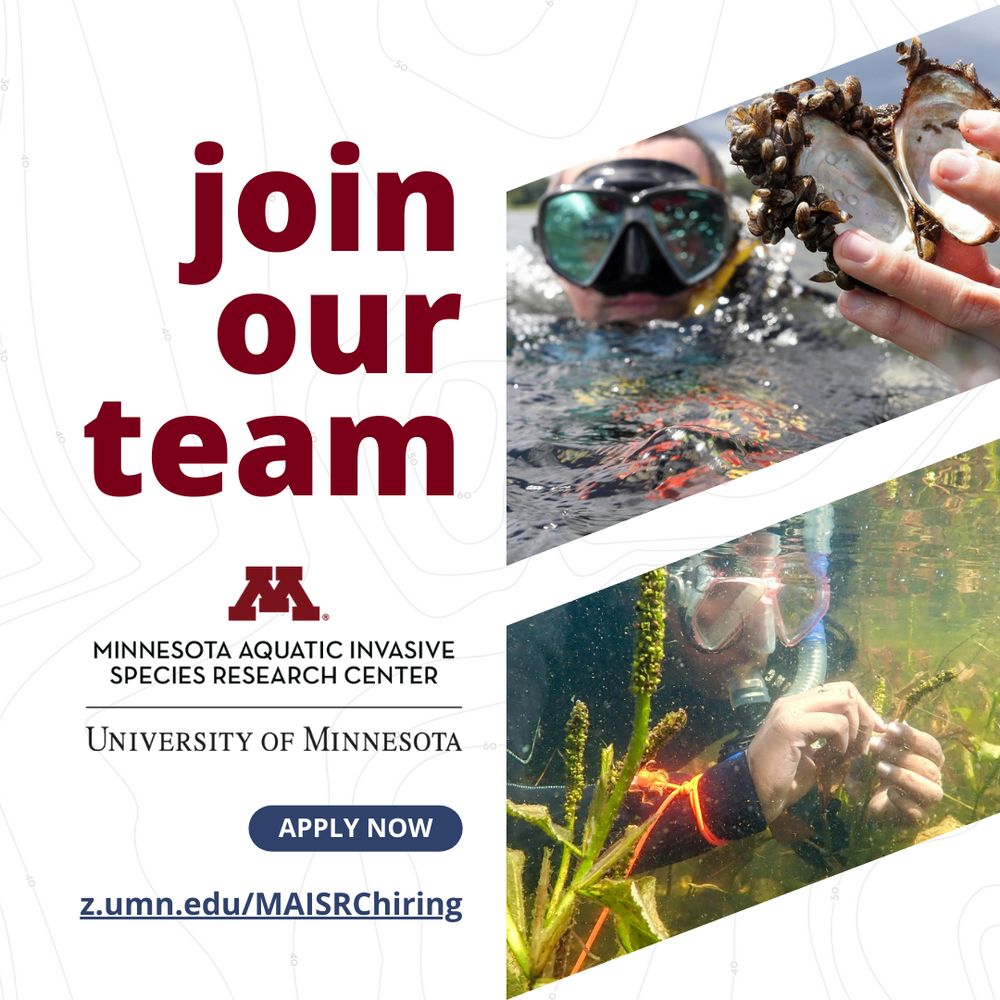
Applications are open through October 10, 2025.
Learn more and apply: z.umn.edu/MAISRCHiring (Job ID #370278).
z.umn.edu/AIS2025

z.umn.edu/AIS2025

Join us on October 9, 2025: z.umn.edu/AIS2025

Join us on October 9, 2025: z.umn.edu/AIS2025

From drinking to swimming and fishing, we all depend on clean water—every day.
Follow us this month as we spotlight how #Minnesota Sea Grant supports clean water in the Land of 10,000+ lakes (+ one really big lake).🌊🧪
#CleanWaterMN #GreatLakes #WaterSky
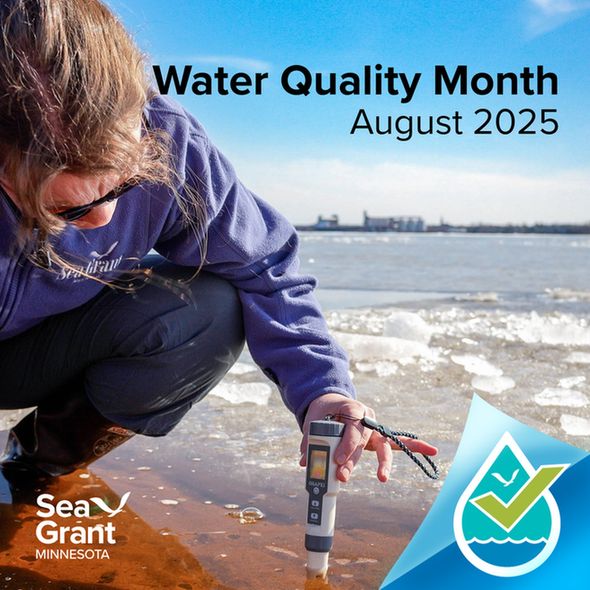
From drinking to swimming and fishing, we all depend on clean water—every day.
Follow us this month as we spotlight how #Minnesota Sea Grant supports clean water in the Land of 10,000+ lakes (+ one really big lake).🌊🧪
#CleanWaterMN #GreatLakes #WaterSky
Quagga mussels have siphoned off energy from the food web, leaving planktivorous fish to go hungry.
www.bridgemi.com/michigan-env...
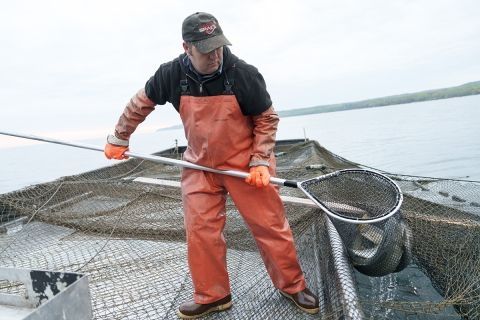
Quagga mussels have siphoned off energy from the food web, leaving planktivorous fish to go hungry.
www.bridgemi.com/michigan-env...

MAISRC is launching a new column in our newsletter with answers to your pressing questions about AIS. Submit your questions here: z.umn.edu/Q-A

MAISRC is launching a new column in our newsletter with answers to your pressing questions about AIS. Submit your questions here: z.umn.edu/Q-A
extension.umn.edu/natural-reso...

extension.umn.edu/natural-reso...

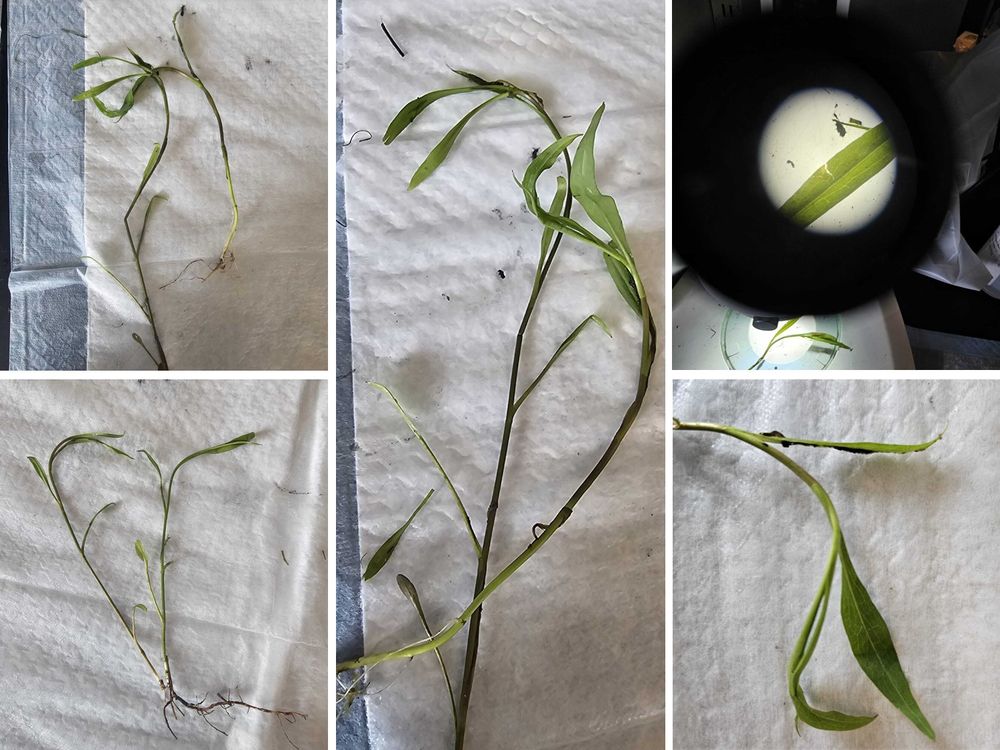
#GreatLakes
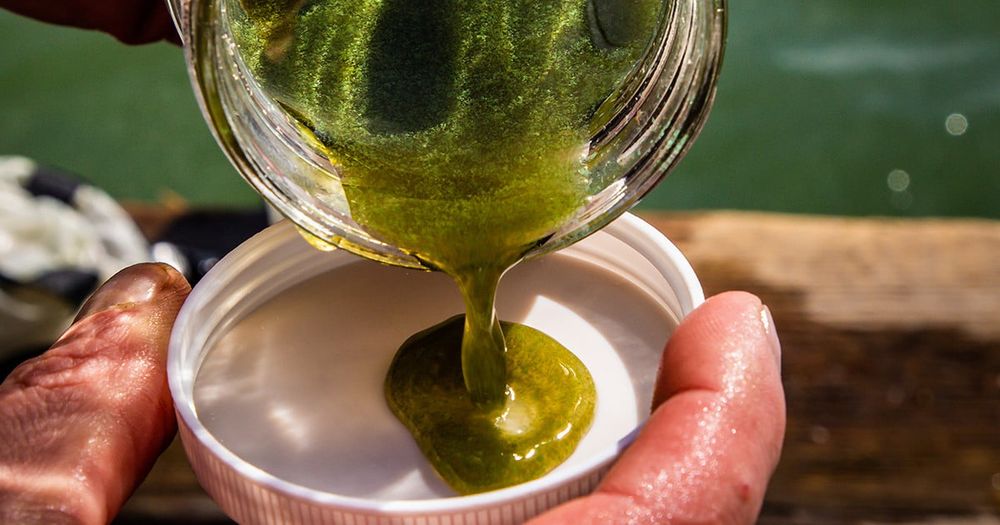
#GreatLakes

